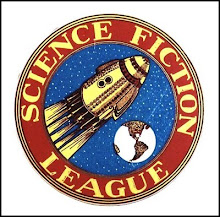
The folLowing was sent by Valerie, culled from the New Scientist. It would seems that the military really knows no bounds.
"Governments around the world are rushing to develop military robots capable of killing autonomously without considering the legal and moral implications, warns a leading roboticist. But another robotics expert argues that robotic soldiers could perhaps be made more ethical than human ones.
Noel Sharkey of Sheffield University, UK, says he became "really scared" after researching plans outlined by the US and other nations to roboticise their military forces. He will outline his concerns to at a one day conderence held in London, UK, on Wednesday.
Over 4000 semi-autonomous robots are already deployed by the US in Iraq, says Sharkey, and other countries – including several European nations, Canada, South Korea, South Africa, Singapore and Israel – are developing similar technologies
Governments around the world are rushing to develop military robots capable of killing autonomously without considering the legal and moral implications, warns a leading roboticist. But another robotics expert argues that robotic soldiers could perhaps be made more ethical than human ones." (Click for the full story.)
The secret word is Gort









2 comments:
Dear Mick,
I am writing to introduce Science Fiction Quarterly, a new online
magazine of science and speculative fiction located at
www.sfquarterly.net, and to invite you to submit new or unpublished
work for publication.
The original Science Fiction Quarterly, edited first by Charles D. Hornig and then by Robert W. Lowndes, was published in two separate runs, from Summer 1940 to Spring 1943 and from Spring 1951 to Winter
1958.
The magazine, which never cost more than 38 cents, published 10 issues
in its first run and 28 in its second. Its history was short, its
influence more or less forgotten.
Our present magazine -- which currently is published exclusively
online -- bears no relation, aside from its general spirit, to its
printed historical predecessor. But our choice of title is by no means
an arbitrary one. The science fiction genre was born, learned to walk, and occasionally even proved transcendent in the story-filled pulpy pages of periodicals like the original Science Fiction Quarterly --
the kinds of magazines which we have been told grown men yearned to
write for while young boys hid them between their mattresses and
bedsprings, away from the watchful eyes of those who might know
better.
Those early magazines, and the stories they published, were admittedly often silly and even more often poorly written and edited -- and we gesture here more toward the amateur fanzines, not John Campbell's Astounding or H.L. Gold's Galaxy. But what was shared amongst the science fiction magazines, good and bad -- and we will ask you to forgive us if in our nostalgia we generalize too greatly -- was a
shared moral sentiment, a sense of right and wrong articulated through
man's interaction with and mastery of technology in the face of
danger, adventure, risk, and romance.
We believe that in the last several decades, science fiction has
fallen astray from its short story roots; and while we cannot
ourselves resurrect them, we can at least provide an outlet in which
they may be explored. And while certainly there remain great and
storied science fiction publications -- Locus, Analog and Asimov's, among others -- we believe not only that there is room for more, but also that there is room for difference, for something that simply is new rather than old.
In keeping with our focus on the short story tradition, we bring an
intense dedication to editing, to getting stories right by working
directly with our authors until together we agree that a story has
been written as best as it possibly can be. We intend to look for new
authors who we may introduce to the world in our pages, as well as
older, more recognizable names who have long worked within (and
without) the conventions of the science and speculative fiction
genres.
Theodore Sturgeon, in our estimation the greatest science fiction short story writer to have lived -- and no stranger himself to the
pulps -- once famously said that "a science fiction story is a story
built around human beings, with a human problem and a human solution,
which would not have happened at all without its scientific content."
We see our mission here at Science Fiction Quarterly within the
framework of Sturgeon's claim. We want, first and foremost, to publish
the best collection of science fiction essays and stories that we
possibly can every three months; but additionally we want to publish
work that in exploring the possibilities of technology retains a human -- and, dare we say, a moral -- core.
If we've successfully captured your interest thus far, please find
below instructions on how to submit your work.
Science Fiction Quarterly welcomes all submissions of short fiction
and other artwork rooted in the genres of science and speculative
fiction, as well as essays and reviews of science fiction books,
films, and television shows. In particular, in addition to fiction, we are interested in publishing "think pieces" related to topics in
science fiction, both as a genre and as a craft; we are also
interested in profiles of science fiction writers and editors. We
accept all written submissions of up to 60 pages, with room for
negotiation if we feel the submission is exceptionally strong. We do not accept work that previously has been published elsewhere.
We will aggressively promote all stories accepted for publication and
in some cases will launch tailored publicity campaigns focusing on one
or more stories.
Please note that since we publish on a quarterly basis, in the
magazine we prefer to publish reviews of past work -- especially
classics and overlooked contributions to the genre -- rather than coming attractions. On the blog, however, we do publish reviews of
current and upcoming work.
We do not currently pay specific rates for published work, nor do we
have any plans to do so in the immediate future. However, authors
receive compensation based on how much revenue is generated by the
advertisements -- placed contextually by Google Adsense -- displayed to the sides of their stories. Also, readers will also be encouraged to donate to the authors of stories they particularly enjoy. All of our authors retain the copyright to their work.
All written submissions should be fully paginated and double-spaced in
12-point Times New Roman font and should include the author's name and
e-mail address on the first two lines. To submit work, you may send an e-mail to submissions@sfquarterly.net with
"submission" in your subject line.
Thanks very much for reading, and whether or not you choose to submit
work, we hope that we can count you as a reader in the months ahead.
If you have any questions, please do not hesitate to reply to this
message, or call me at +1 646 789 4174.
Best regards,
Glover Wright
Editor
Wow! Sure thing. Count me in. I will call. For future ref. email is -- byron4d@msn.com
Post a Comment